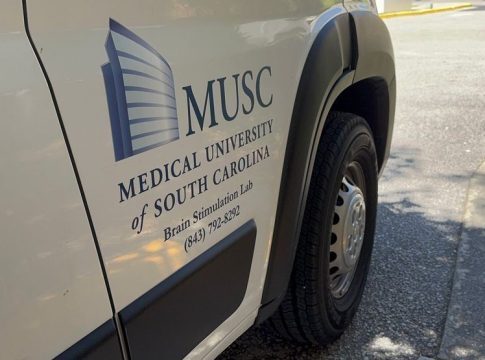Enhancing Accessibility to Depression Treatment: MUSC’s Mobile Brain Stimulation Unit
A New Approach to Depression Treatment
In a compassionate effort to broaden access to mental health care, the Medical University of South Carolina (MUSC) has unveiled a groundbreaking mobile brain stimulation lab designed specifically for Transcranial Magnetic Stimulation (TMS). This innovative treatment targets the pre-frontal cortex, a brain area often affected by depression, offering hope to those struggling with the illness.
What Is Transcranial Magnetic Stimulation (TMS)?
TMS is a non-invasive procedure that uses magnetic fields to stimulate nerve cells in the brain. While many individuals find relief through traditional medications and therapy, approximately one-third of patients experience what is known as “treatment-resistant depression.” This means conventional methods have not been effective for them.
Dr. Mark George, a Psychiatrist and Neurologist at MUSC, emphasizes the urgency of improving access to TMS, noting that there are around 26,000 individuals in South Carolina who could benefit from this treatment but may live outside major urban areas.
Breaking Down Barriers
Traditionally, accessing TMS has involved a considerable commitment: patients typically attend sessions 30 times over six weeks, often requiring long journeys to urban centers. The process can create what Dr. George describes as a “schlep factor,” presenting obstacles for those with work or family responsibilities.
The new mobile unit, aptly named "Hope," aims to dismantle these barriers, bringing TMS directly to the communities that need it most. As its benefactor poignantly noted, depression can rob individuals of hope, and this initiative is designed to restore it.
Real-Life Impact
The mobile unit has already made a meaningful impact. A patient, who had previously struggled to access TMS due to family obligations, experienced a significant reduction in her depressive symptoms after receiving treatment in the van. Her story illustrates how this innovative approach can change lives, especially for those who find traditional treatment methods challenging to navigate.
Looking Ahead
MUSC is currently assessing the long-term feasibility of this mobile service, with aspirations to expand its reach. Encouragingly, patients within a 90-minute radius of Charleston can receive TMS treatment at no cost, presenting a unique opportunity for those in dire need.
Empowering Every Mind
As mental health continues to be a crucial part of overall well-being, initiatives like MUSC’s mobile lab represent a significant step toward inclusivity in treatment. If you or someone you know has been affected by depression and has faced obstacles in accessing care, know that change is underway. The availability of mobile mental health services is a beacon of hope, reminding us that support, understanding, and innovative solutions are within reach.
In the journey of mental health, every step toward making treatment more accessible helps to illuminate the path for countless others. Keep hope alive; support and resources are becoming more available each day.

Covers wellness, nutrition, mental health, and daily life tips.
Bio: Talia brings a background in health journalism and holistic living to help readers live better, one tip at a time.

